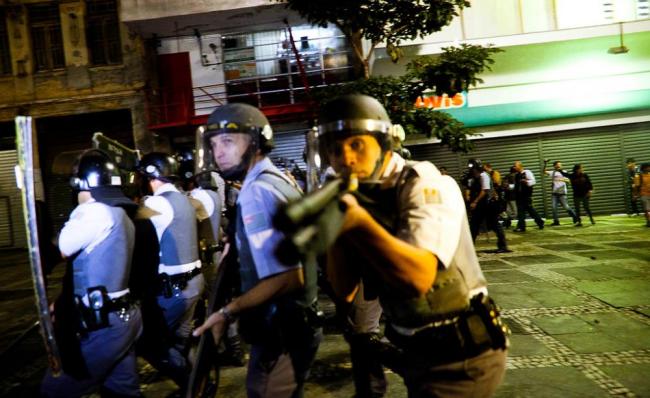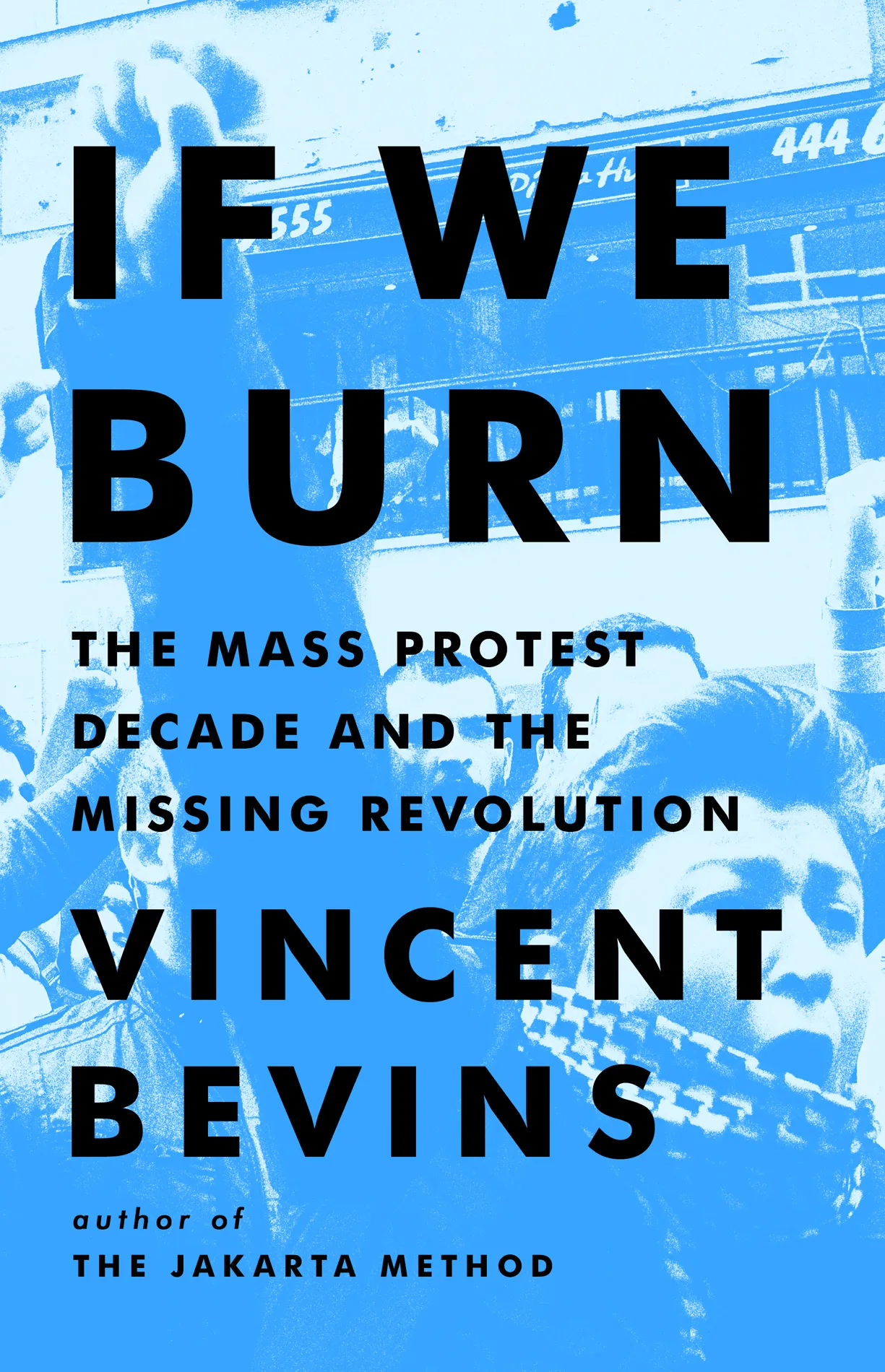Articles Menu

Website editor: Important read.
Dec. 18, 2023
The people in power are not acting on climate breakdown. Which presents us, those not in power, with three options. We change the actions of those in power, we change the people in power or we change the nature of power itself.
There are people who still believe we can influence those in power, that access to the right information about climate breakdown coupled with lobbying, petitioning, and voting can convince even self-serving politicians to take action to end fossils. This is, after all, what they were supposed to be doing at COP28.
The alternative, it is assumed, is that we can build mass movements that will force world leaders to take the threat of climate breakdown seriously, and at last challenge the power of the incumbent complex monopoly that profits from the extraction and burning of fossil fuels even as the immense human costs become ever more apparent.
Spark
This assumption undergirds the design of climate movement today - including the initial strategy of Extinction Rebellion (XR) of making capital cities ungovernable so that populations would demand that their governments would support a citizens’ assembly and implement its policy proposals. Prime ministers would act, even if this was just to keep the traffic flowing and the voters happy.
Vincent Bevins’ vital and timely book If We Burn: The Mass Protest Decade and the Missing Revolution does not mention XR, and it does not discuss climate breakdown in any significant way. But it’s possible, necessary, to read this book as a ‘prequal’ to the climate movements of the last decade.
This is because Bevins provides a mountain of evidence and a compelling argument that mass movements that do not have leadership, democracy and representation (and dare we say, hierarchy) - such as Extinction Rebellion - will fail. Or worse.
Bevins has worked for the Financial Times and the LA Times and the heart of the book is his direct experience and reporting from the mass movements that overwhelmed, but then underwhelmed, activists in Brazil. The book also looks at movements in 10 different countries - including Egypt, Ukraine, Hong Kong, but not the UK - from 2010 to 2020.
The primary finding is that “politics abhors a vacuum” and leaderless, horizontal, anarchic social movements will not deliver the change they desire, and can in fact result in the very opposite. Bevins does not make this case from a philosophical dislike of autonomist movements. He has seen in real time campaigns of this kind spark social upheaval only to watch in horror as centralised, hierarchical, strictly organised groups (often those willing to use violence) move into and take over the spaces created.
Progressives
The book opens on 13 June 2013 with the phrase “the military police attacked us”. Bevins deftly introduces his characters, or contacts, in the Brazilian movement. He portrays them as intelligent, dedicated, selfless - and destined for failure. In each of the countries he introduces the people who initiated huge upsurges in protest and contestation, often through social media and a keen understanding of the zeitgeist.
We have to act. But if we take action in a way that is ineffectual we will reap a whirlwind.
The one thing I appreciate most about this book is the way it delivers just the information you need about each movement, succinctly and precisely. We are presented with the historical context. The nature of the government being contested is well described, from the leftist Partido dos Trabalhadores or Workers’ Party governments in Brazil to the post-colonial authoritarian regime in Hong Kong. Bevins is a great story teller. You can taste the tear gas. You experience these protests, and not simply read about them.
Further, Bevins seems only to reluctantly share his conclusions and prescriptions. The front line journalism takes up fully the first 257 pages. Only when we get to the chapter ‘Reconstructing the Past’, and the final 33 pages of the book does he share what he has learned from all this empirical evidence. I found this very persuasive. You read about the social movements, you start to infer your own conclusions, and then Bevins comes to the fore and affirms these findings.
Bevins partly wants to hold on to the position of objective, and somewhat mainstream, reporter. “I am not a historian, I have certainly never carried out a successful revolution. I’m a journalist, so I have no lessons to impart of my own.” Though he admits to becoming angry when the socially progressive Movimento Passe Livre (MPL) or Free Fare Movement of Brazil was punked by the Movimento Brasil Livre (MBL) in order to successfully destabilise the leftist government. His ultimate findings are controversial and lean into the two most difficult paradoxes that those fighting for social change have to address.
The aim of the book is to explore the specific kind of social movement that took place in very different countries at around the same time. These movements came after the fall of the Soviet Union, which was widely seen as evidence that Communism (and also communism) was a complete failure. Progressives came to distrust command and control, and especially violence of all kinds.
Horizonalists
The hope - often personified by Mahatma Gandhi and Martin Luther King - was that principled nonviolence could result in significant change, including change in governments, as long as enough people were involved. This theory, Bevins suggests, was stress tested across the globe under a variety of different regimes. It was explored by principled and intelligent activists, with impressive new tools such as Twitter. But the result, every time, was that committed activists were left bereft, having advised their own people, often teenagers, to run into the guns and prisons of oppressive regimes.
Bevins says the finding from these great experiments is that the activists involved have themselves abandoned the belief that “prefigurative”, vertical, pluralistic, leaderless mass movements can deliver meaningful change. They will only be defeated in the new areas of contestation they themselves have created by military intervention (as was the case in Egypt), better funded and coordinated networks (Brazil) or straight up fascist ultras (Ukraine).
One way to read this book is a respectful if sharp dialogue with Rodrigo Nunes, who pops up in If We Burn on four different occasions. Nunes is introduced as a participant in the World Social Forum in Porto Alegre who initiated the rebel clown army. Later we are told that he “was one of the evangelists of the Brazilian alter-globalisation movement in its fully horizontalist phase” and later wrote his own book, Neither Vertical or Horizontal. This found that horizonalism alone simply would not work and centralised hierarchical organisations were a ever present (and necessary) part of the ecology of rebellion. Bevins sees this shift from autonomism to “networked Leninism” as echoing his own.
The second figure that keeps cropping up in this book is Lenin - the founder of the Soviet Union, with five different appearances. He pops up first simply as the person who has been credited with the genius phrase “there are decades when nothing happens; and there are weeks when decades happen.” It’s Lenin’s formulation of the party and the “dictatorship of the proletariat” that was roundly rejected by autonomists and horizonalists in the first place. But it is Lenin who Bevins turns to on the penultimate page of the book.

Consequences
Bevins concludes that for a social movement to succeed it really must be organised. Representation is necessary: we can’t all be in every meeting debating every decision. This means at times we must be centralised and hierarchical. This is the only way to hold the space for democracy, for inclusive decision making, for implementation. It, and perhaps only it, can protect the public square from the military, the fascists, the clown autocrats. This is how we solve the paradoxes that define our age.
Those of us who want to see societies emerge that are based on equality, transparency, fairness, kindness and nonviolence are always confronted with the first paradox. Organisations that are based on these values - that prefigure such a future - are not fit for purpose when it comes to overthrowing authoritarian regimes. The second related paradox is that to end violence, including wars and genocide, seems to necessitate the use of violence in self defence against such regimes.
This means that there is a cohort of activists who are completely committed to nonviolence, to pluralism, to openness and personal freedom but who also recognise that to achieve such things on a social level means that for a period we might have to act in a way that manifests the very opposite. We have no choice but to defend ourselves, to defend our communities, to defend our ecosystems.
You don’t have to accept this argument, Bevins concludes. Indeed, you don’t have to contest power and become engaged in social movements that rock existing regimes to their core. But if you do become involved, there is a responsibility to learn from the past: from the beginning of the last century and the beginning of this one. There is a responsibility to be conscious of the possible consequences, intended or otherwise, of such actions.
Transform
Reading the book made me come to terms with the fact that XR has been fundamentally unsuccessful. It never made a city ungovernable, anywhere. It never forced a government to set up an actual citizen’s assembly whose policy prescriptions on climate breakdown would be implemented. Perhaps this is a good thing. If a government had been forced by such a rebellion to cede power, what forces would have emerged to snatch it away? Would the fossil fuel industries prefer fascist regimes to a just transition? All the evidence suggests so.
At the same time, our original problem does not go away. The COP28 conference in UAE, hosted by the oil executive and autocrat Sultan Ahmed Al Jaber, has left no room for doubt that business as usual will mean that “every molecule of hydrocarbon will come out”, resulting in climate breakdown, civilisation collapse and, in the longest term, the possible total extinction of life on Earth.
We have to act. But if we take action in a way that is ineffectual we will reap a whirlwind. We are faced only with choices we do not like. The least worst option might be to develop institutions that can defend against the violence of the fossil fuel industries, the fascists, the clown authoritarians. Perhaps such organisations can be deployed only for a necessary period of contention, and internal democracy will ensure they are disassembled when an epoch of peace, equality and freedom is made possible. Perhaps.
Antoine Louis Léon de Richebourg de Saint-Just was a political philosopher and military leader during the French revolution, the historical moment that all attempts to thoroughly transform society must reckon with. He does not appear in Bevins book, having lived centuries before this book’s decade of concern. Nonetheless, he does prefigure its core message. “Those who make revolutions by halves do nothing but dig their own tombs.”
This Author
Brendan Montague is editor of The Ecologist.
[Top photo: São Paulo, São Paulo, Brasil, June 11, 2013. Image: Gabriel Cabral / Creative Commons 2.0.Gabriel Cabral / Creative Commons 2.0]